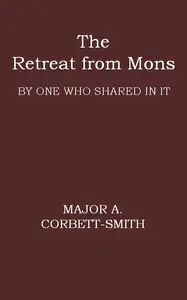"A Hilltop on the Marne" by Mildred Aldrich is a compilation of letters spanning June to September 1914, detailing the author's life in a small French village near Paris as World War I begins. The book captures Aldrich's move from a busy city to a quiet country home and showcases her efforts to find peace as war approaches. Initially, Aldrich writes of her eagerness to escape to the calm countryside following a busy life, believing she can discover happiness in her new home. Through her letters, she illustrates her house in Huiry, the beauty of the surrounding landscape, and her hopes for a simple life, all while acknowledging the growing tensions in Europe. As the story progresses, Aldrich recounts her experiences seeing the French military mobilize and witnessing how the local community gets ready for war, creating a sharp contrast between her peaceful country life and the grim truth of the approaching conflict.

A Hilltop on the Marne Being Letters Written June 3-September 8, 1914
By Mildred Aldrich
Amidst the serene French countryside, a woman's pursuit of tranquility is disrupted by the encroaching shadow of war.
Summary
About the AuthorMildred Aldrich (1853-1928) was an American journalist, editor, writer and translator. She spent her early career as a journalist and editor in Boston before moving to Paris, where she continued working as a foreign correspondent and translator. In 1914, shortly before the start of World War I, she retired to a house in the French countryside overlooking the Marne River valley. She published a novel and four accounts of her life based on collections of her letters written during the war years. In 1922, she was awarded the French Legion of Honour in recognition of her assistance to soldiers and refugees, and the influence her books apparently had in persuading the United States government to declare war on Germany.
Mildred Aldrich (1853-1928) was an American journalist, editor, writer and translator. She spent her early career as a journalist and editor in Boston before moving to Paris, where she continued working as a foreign correspondent and translator. In 1914, shortly before the start of World War I, she retired to a house in the French countryside overlooking the Marne River valley. She published a novel and four accounts of her life based on collections of her letters written during the war years. In 1922, she was awarded the French Legion of Honour in recognition of her assistance to soldiers and refugees, and the influence her books apparently had in persuading the United States government to declare war on Germany.














